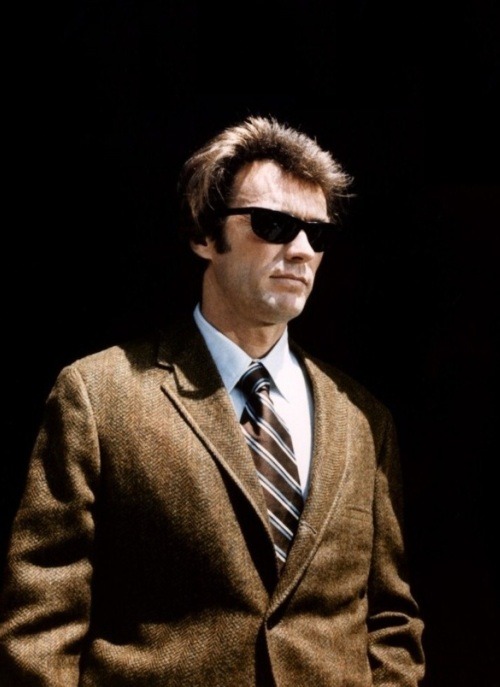I kinda stumbled onto this book just surfing around amazon.com. The cover was very striking, and being a great admirer of Eastwood, I thought, "what the hell?" Let me say that taking the time to read Conversations with Clint: Paul Nelson's Lost Interviews with Clint Eastwood, 1979-1983 was one of the better chances I've ever taken.
The book consists of transcriptions of taped conversations between Paul Nelson, who had been Rolling Stone's music review editor, and Clint Eastwood. These were intended to produce a Rolling Stone cover story, a story that was scheduled, re-scheduled, and ultimately, cancelled. The project apparently (I can only go by what's in the material presented within the book) fell victim to Nelson's OCD tendencies and writer's block.
As a person who finds Eastwood brilliant, in almost every facet of his career, this book is truly like candy. I finished it within two days. Nelson clearly views Eastwood as a true artist, as well. Personally, I can't imagine anyone seeing The Outlaw Josey Wales and not understanding that Eastwood, both in front of and behind the camera, is something special.
The discussion is fairly rambling, but has been edited into a chronological format, based on Eastwood's career. They touch on the Leone westerns, Dirty Harry (Nelson even bought a Smith and Wesson .44 Magnum, he loved the film so much), Eastwood's directorial debut Play Misty for Me, the Harry sequels, Every Which Way but Loose and it's sequel, Bronco Billy, etc, etc. It's a nice snapshot of Eastwood in his period of (arguably) greatest success, but before he was embraced by the critical mass as a true force. A transition that, really, didn't happen until The Unforgiven in 1992 (man, so long ago).
What's truly interesting is seeing how clear Eastwood's vision was of how to do things, even then. His clarity on art, and his own expression, really ought to be envied. There's a particularly wonderful conversation where Warren Zevon joins Eastwood and Nelson, and they delve into the only Dirty Harry film Clint directed himself, 1983's Sudden Impact. There's a bit of bemoaning at the fact that the ending of the film, which deals with Callahan encountering a woman (Sondra Locke) systematically murdering the group which had raped her and her sister years earlier, leaves the audience with many, many questions about capital punishment, justice and retribution, would never be seriously considered. Never, because it's a "dumb action movie."
To be fair, despite spawning the most well-known Dirty Harry catchphrase ("Go, ahead. Make my day."), Sudden Impact is a lesser Dirty Harry movie. Very, very, very 80's, the villains feel even more over-the-top and ridiculous than Andrew Robinson's intentionally "all the way" (and terrifying) performance as the Scorpio killer in the 1971 original. Harry had also moved beyond what the original film was, a tough-minded detective film, into a sort of mythic caricature. Eastwood was climbing a big hill to try to re-inject some of the moral uncertainty that Dirty Harry absolutely wallowed in.
I could go on for hours about how Dirty Harry is anything but the "fascist pornography" that some of the Left like to pigeonhole it as. That's for another blog. Although, Eastwood himself makes many of the same points I would in this book.
What becomes clear is that, at a time when it wasn't fashionable to do so, Eastwood knows that the only criteria he can have about doing a picture, or not, is his own taste. Every movie he's done, be it Firefox or Honkytonk Man, were because he liked the material. He's driven by story, and believes in the primacy of that as a reason audiences respond to a film.
In any case, Conversations with Clint is an amazing read for anyone who'd like to get a little further inside the mind of a filmmaker who clearly is now, and I think was then, a master of his craft.


No comments:
Post a Comment